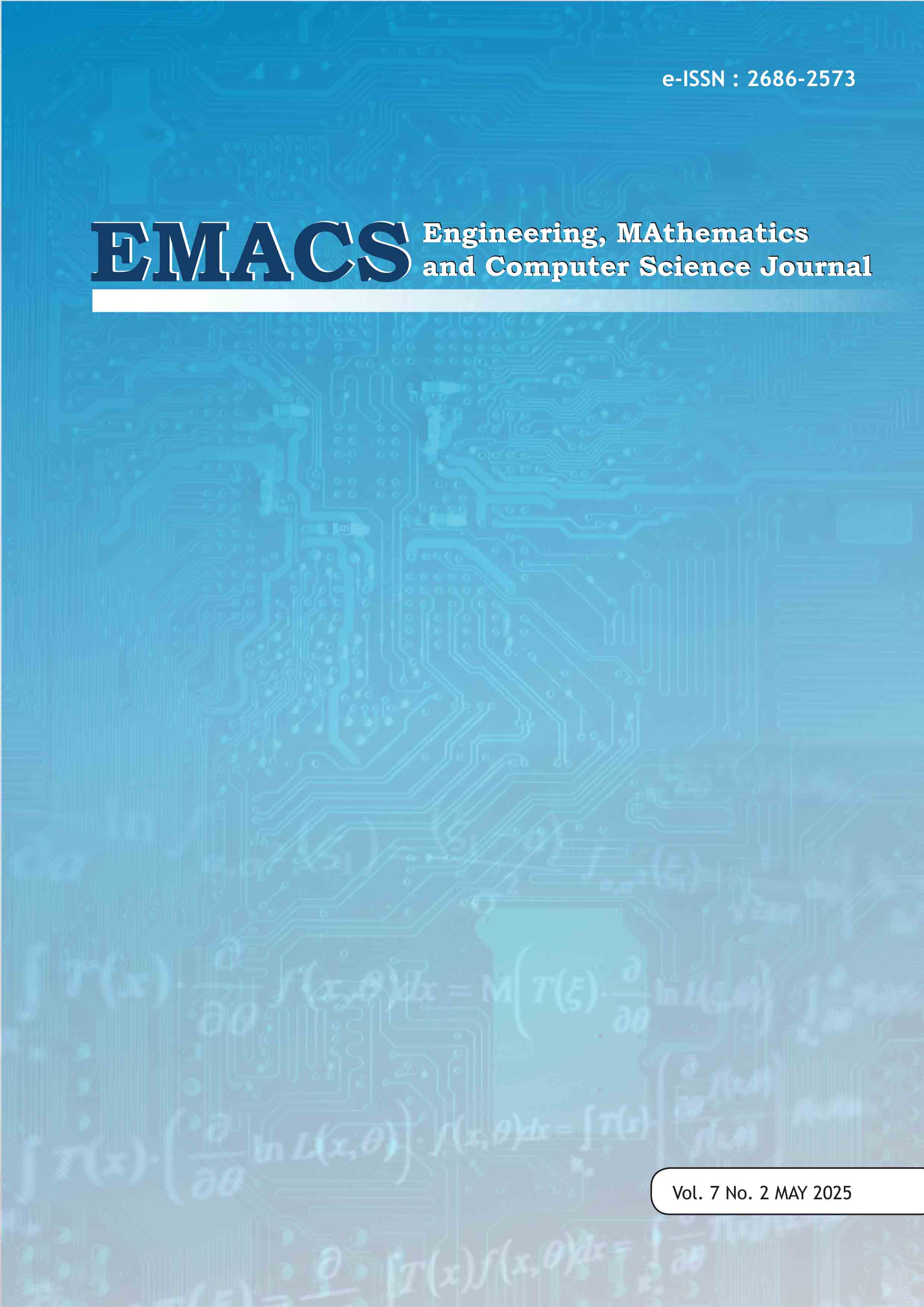Sentiment Analysis of Slang Language Trends in Generation Alpha on Social Media Using BERT
DOI:
https://doi.org/10.21512/emacsjournal.v7i2.13368Keywords:
BERT, Gen Alpha, Sentiment, Slang LanguageAbstract
Generation Alpha is a group growing up in an era of rapid digital technology advancement. Unlike previous generations who experienced a transition into technology, Generation Alpha demonstrates unique communication characteristics, particularly in their frequent use of slang, which is often difficult for older generations to understand. This gap in language understanding can lead to miscommunication, especially when the meaning of slang is misinterpreted. This phenomenon presents a challenge in establishing intergenerational communication, especially in digital and social media contexts where informal language is dominant. This study aims to explore the effectiveness of AI models in analyzing the sentiment of slang language used by Generation Alpha. Three BERT-based models were utilized in this research: BERT, RoBERTa, and DistilBERT. These models were selected based on their performance and efficiency in natural language processing (NLP) tasks, particularly in text classification and sentiment analysis. The dataset consists of 24,958 slang-based posts collected from users on the social media platform X. The analysis shows that DistilBERT achieved the highest accuracy score of 0.83, followed by BERT (0.82) and RoBERTa (0.81). These findings suggest that BERT-based models, especially DistilBERT, perform reliably in identifying the sentiment behind slang expressions used by Generation Alpha and hold potential for implementation in AI-based moderation or social media monitoring systems.
References
Akbik, A., Bergmann, T., Blythe, D., Rasul, K., Schweter, S., & Vollgraf, R. (2019). FLAIR: An Easy-to-Use Framework for State-of-the-Art NLP. Proceedings of NAACL-HLT 2019: Demonstrations, 54–59. https://doi.org/10.18653/v1/N19-4010
Akintoye, O., Wei, N., & Liu, Q. (2024). Suicide Detection in Tweets Using LSTM and Transformers. Proceedings - 2024 4th Asia Conference on Information Engineering, ACIE 2024, 22–27. https://doi.org/10.1109/ACIE61839.2024.00011
Christodoulou, C. (2023). NLP CHRISTINE@LT-EDI: RoBERTa & DeBERTa Fine-tuning for Detecting Signs of Depression from Social Media Text. LTEDI 2023 - 3rd Workshop on Language Technology for Equality, Diversity and Inclusion, Associated with the 14th International Conference on Recent Advances in Natural Language Processing, RANLP 2023 - Proceedings, 109–116. https://doi.org/10.26615/978-954-452-084-7_016
Damar, C., Rizal Isnanto, R., & Widodo, A. P. (2024). Review Of Systematic Literature About Sentiment Analysis Techniques. In Tuijin Jishu/Journal of Propulsion Technology (Vol. 45, Issue 1).
Devlin, J., Chang, M.-W., Lee, K., & Toutanova, K. (2018). BERT: Pre-training of Deep Bidirectional Transformers for Language Understanding. https://doi.org/10.48550/arXiv.1810.04805
Dryankova, M., Dimitrov, D., Koychev, I., & Nakov, P. (2024). Check-Worthiness of Tweets with Multilingual Embeddings and Adversarial Training. https://ceur-ws.org/Vol-3740/paper-36.pdf
Gandhi, J. N., Guru, K. V., Kannan, A. R., Sudhan, R. A., Kumar, S. A., & Bharathvaj, M. (2025). Efficient Sentiment Classification using DistilBERT for Enhanced NLP Performance. 1500–1511. https://doi.org/10.2991/978-94-6463-718-2_125
Hutto, C. J., & Gilbert, E. (2014). VADER: A Parsimonious Rule-based Model for Sentiment Analysis of Social Media Text. Proceedings of the Eighth International AAAI Conference on Weblogs and Social Media, 216–225. https://doi.org/10.1609/icwsm.v8i1.14550
Liu, Y., Ott, M., Goyal, N., Du, J., Joshi, M., Chen, D., Levy, O., Lewis, M., Zettlemoyer, L., & Stoyanov, V. (2019). RoBERTa: A Robustly Optimized BERT Pretraining Approach. http://arxiv.org/abs/1907.11692
Loria, S. (2025). textblob Documentation (Issue 0.19.0).
McCrindle, M., & Fell, A. (2021). Generation Alpha. Hachette UK. https://books.google.co.id/books?id=nmQQEAAAQBAJ
McCrindle, Mark., Wolfinger, Emily., & Salt, Bernard. (2009). The ABC of XYZ: Understanding the Global Generations. UNSW Press, UNSW Press. https://books.google.co.id/books?id=BDPHKP31lQEC
Palomino, M., & Aider, F. (2022). Evaluating the Effectiveness of Text Pre-Processing in Sentiment Analysis. Applied Sciences, 12, 8765. https://doi.org/10.3390/app12178765
Paoleti, V. D., Fathiyya, N., & Mujahidah, Z. (2025). Youth Language Uncovered: Meta-Synthetic Insights Into Gen Z And Gen Alpha Slang. Journal of English Education, 13(1). https://doi.org/10.25134/erjee.v13i1.11425
Priccilia, S. (2025). Generation Alpha Slang Tweets. https://www.kaggle.com/datasets/sunnysunshine001/generation-alpha-slang-tweets/data
Rachmijati, C., & Cahyati, S. S. (2024). Know Your Skibidi: Navigating Gen Alpha’s Slang Types and Trend on Social Media X. International Conference On Research And Development (ICORAD), 3(2), 392–400. https://doi.org/10.47841/ICORAD.V3I2.219
Sanh, V., Debut, L., Chaumond, J., & Wolf, T. (2019). DistilBERT, a distilled version of BERT: smaller, faster, cheaper and lighter. http://arxiv.org/abs/1910.01108
Subhan, M., Firdaus, D., Yatmikasari, I., & Djati Bandung, G. (2025). Gen Alpha Slang in “Last Rizzday Night” Lyrics: A Semantic Analysis. Journal of English Language and Education, 10, 2025. https://doi.org/10.31004/jele.v10i1.648
Thelwall, M., & Cambria, E. (2021). This! identifying new sentiment slang through orthographic pleonasm online: Yasss slay gorg queen ilysm. IEEE Intelligent Systems, 36(4), 114–120. https://doi.org/10.1109/MIS.2021.3062475
Xu, Q. A., Chang, V., & Jayne, C. (2022). A systematic review of social media-based sentiment analysis: Emerging trends and challenges. Decision Analytics Journal, 3, 100073. https://doi.org/10.1016/j.dajour.2022.100073
Downloads
Published
How to Cite
Issue
Section
License
Copyright (c) 2025 Shania Priccilia, Erin Erin

This work is licensed under a Creative Commons Attribution-ShareAlike 4.0 International License.
Authors who publish with this journal agree to the following terms:
- Authors retain copyright and grant the journal right of first publication with the work simultaneously licensed under a Creative Commons Attribution License - Share Alike that allows others to share the work with an acknowledgment of the work's authorship and initial publication in this journal.
- Authors are able to enter into separate, additional contractual arrangements for the non-exclusive distribution of the journal's published version of the work (e.g., post it to an institutional repository or publish it in a book), with an acknowledgment of its initial publication in this journal.
- Authors are permitted and encouraged to post their work online (e.g., in institutional repositories or on their website) prior to and during the submission process, as it can lead to productive exchanges, as well as earlier and greater citation of published work.
USER RIGHTS
All articles published Open Access will be immediately and permanently free for everyone to read and download. We are continuously working with our author communities to select the best choice of license options, currently being defined for this journal as follows: Creative Commons Attribution-Share Alike (CC BY-SA)





